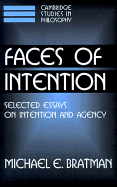Book contents
- Frontmatter
- Contents
- Acknowledgments
- 1 Introduction: Planning Agents in a Social World
- PART ONE ACCEPTANCE AND STABILITY
- PART TWO SHARED AGENCY
- PART THREE RESPONSIBILITY AND IDENTIFICATION
- PART FOUR CRITICAL STUDIES
- 11 Davidson's Theory of Intention
- 12 Castañeda's Theory of Thought and Action
- 13 Cognitivism about Practical Reason
- 14 Review of Korsgaard's The Sources of Normativity
- Index
14 - Review of Korsgaard's The Sources of Normativity
Published online by Cambridge University Press: 18 December 2009
- Frontmatter
- Contents
- Acknowledgments
- 1 Introduction: Planning Agents in a Social World
- PART ONE ACCEPTANCE AND STABILITY
- PART TWO SHARED AGENCY
- PART THREE RESPONSIBILITY AND IDENTIFICATION
- PART FOUR CRITICAL STUDIES
- 11 Davidson's Theory of Intention
- 12 Castañeda's Theory of Thought and Action
- 13 Cognitivism about Practical Reason
- 14 Review of Korsgaard's The Sources of Normativity
- Index
Summary
The Sources of Normativity derives from the 1992 Tanner Lectures and Seminar in Cambridge, England. It consists of a brief introduction by Onora O'Neill, a “Prologue” and four lectures by Christine Korsgaard, separate discussions of these lectures by G. A. Cohen, Raymond Geuss, Thomas Nagel, and Bernard Williams, and a concluding “Reply” by Korsgaard. It is a major work of the first importance.
We have beliefs and intentions, and we perform actions. In each case we make ought judgments that purport to say what to believe, what to intend, what to do. In making claims on what we believe, intend, or do such judgments are normative, and we can ask what the source, the justification, of this normativity is. Morality, in particular, makes normative claims – sometimes quite demanding – on (at least) what we intend and do. We can ask what the grounds are for the normativity of such moral demands.
Korsgaard's main question – which she labels “the normative question” (10) – is this last question about the “claims morality makes on us.” (10). But her answer involves a general approach to grounds for normative claims on what we intend and do. Her answer – which she sees as Kantian, and notes (99n) has similarities to views of Harry Frankfurt – is that the basic ground of practical normativity is “the reflective structure” of our minds (100). We – normal, mature human beings – have the capacity to be reflectively aware of the desires and inclinations that tend to move us to intention and action.
- Type
- Chapter
- Information
- Faces of IntentionSelected Essays on Intention and Agency, pp. 265 - 278Publisher: Cambridge University PressPrint publication year: 1999
- 1
- Cited by



